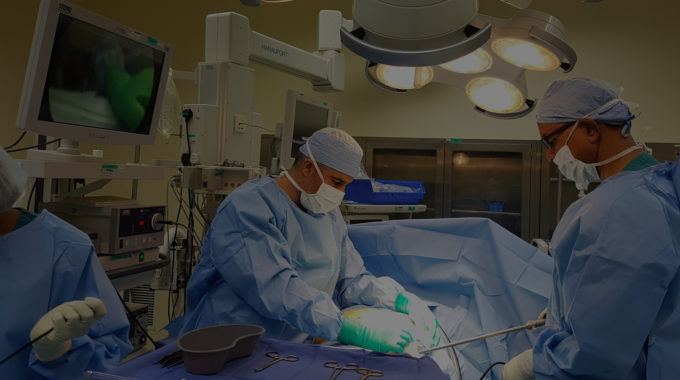
Hernia Surgery Recovery Time Back To Work
One of the most common questions people have when preparing for hernia surgery recovery is: how much time should I take off from work? Everyone’s situation is different and what works for one person may not work for another, but we would like to help you think of all the factors beforehand so you can give your boss or manager a reasonable estimate as to when you might return to work. The absolute minimum most people take off from work though is 1 week. Keep reading to see what other factors may lead you to want to take more time off though.
When to tell your boss about your upcoming hernia surgery
All bosses react differently when an employee notifies them that they will be taking days off for a medical reason. Some will wonder if you are taking advantage of your company’s sick policy. Some will be extremely concerned about your situation and make sure you know to take off as much time as needed. And some will just be indifferent and forget you were even gone. Assuming you did not have to go in for an emergency hernia surgery, we think it is best to give your boss as much notice as possible about your upcoming surgery. By giving notice early, most reasonable bosses will be appreciative for knowing what they will have to do to cover for your shift or make sure your work gets done while you are out. By giving enough early notice, this should also help prevent them from springing any last minute assignments on you. Giving them notice and explaining that this is a major surgery should indicate the importance of your upcoming procedure to them.
Working from home
Employees have become very accessible people over the last decade. Nowadays, most people that work in an office setting have a company cell phone and a laptop that they can take home if they need to get some work done after hours. Because of this, your boss may be thinking that just because you are home recovering from hernia surgery, there is no reason you cannot get a little work done and do your job from there too. After all, you are just going to be lying down in bed or on a couch and watching TV, right?
Yes, you should be lying down and resting when you get back from the hospital. However, you will still be extremely groggy from the anesthesia and once you start taking your prescribed pain medications, you will probably be sleeping quite a bit. Additionally, when you are awake, you need to lie down properly and rest your recently repaired area. Sitting up and working on a laptop may seem effortless, but it is still placing some stress on your repaired hernia and any stress at this point is unnecessary. We highly recommend you avoid doing any work from a laptop for at least the first 2 or 3 days after surgery. If you need to answer or respond to e-mails, we recommend doing it from your smart phone. But even then, still limit how much work you are doing. Your body just had major surgery and resting is an essential component to a good recovery. If something is so important at work that it requires immediate attention, someone else can handle it or they should have thought about it before you had surgery.
Factors contributing to amount of time off from work needed after surgery
Type of procedure performed
The way in which your hernia was repaired plays a big factor in the speed of your recovery and how much time you will need off from work. Patients tend to recover quicker from a laparoscopic hernia repair as opposed to an open hernia repair. Therefore, if your procedure was done laparoscopic, you may be feeling a few days sooner. However, do not make a decision on how your hernia should be repaired just because you think you may get back to work a day or two earlier. We will cover it in more detail on another post, but you should choose the type of operation that would best fix your hernia for the long-term and the best method that your surgeon recommends for your hernia repair. Every situation is different and your doctor should know which is the best option for you. Having the surgery done laparoscopic just because you may go back to work 1 day earlier does not make sense if there is a much higher risk for other complications. We think whichever method best repairs your hernia for the long-term is the best solution, but listen to your surgeon’s recommendation on which method they believe that is for you
Job Responsibilities
Your work environment and job responsibilities are other big factors in how fast you will be able to go back to work. Most doctors will tell you that for about the first week or two after surgery, you should not be lifting anything heavier than 5-10 pounds. And for the next 5-6 weeks after that you should not be lifting anything heavier than about 20 pounds. Therefore, if your job requires a lot of lifting and physical exertion, it may be several weeks before you can actually perform your job responsibilities again. You should try to work with your boss the best you can and identify how else you can help out around the office without possibly damaging your repaired hernia.
If your job does not require much physical exertion, the minimum amount of time you should still take off is probably 1 week. The biggest reason you should not go back any earlier is because your body still needs as much rest as possible and any unnecessary physical activity could risk doing damage to the area. However, even if this was not a concern, it is not safe for you to drive to work this week. Your body will still have small traces of anesthesia in it for about a week and you will more than likely still be on pain medications.
Workplace environment
Your workplace environment also plays a role in how soon you should go back to work and what additional accommodations you may need to make when you go back. Your repaired area will most likely still be sore and tight when you go back to work and everyday activities still may not be as simple they were before your surgery. For example, if your workplace does not have an elevator and you have to climb a few flights of stairs up and down to your office, you may want to see if there is an office on the first floor you could work from temporarily. If not, you will want to try and limit your trips up and down the stairs. You may want to take your lunch and eat at your desk your first week back to avoid too much activity too soon. Also, be thinking about your commute to work and home. Is it an easy commute or does it involve a good amount of walking and public transportation? If it is a fair amount of activity you may need to add a few more days or weeks to the amount of time you are planning on taking off.
Age
All else equal, younger patients generally recover faster from hernia surgery than older patients. People that have had multiple hernia surgeries at different points in their life generally say the same thing: their body recovered much faster when they were younger. It is very difficult to project how fast your body will recover, but if you are at least older than your mid-20’s, expect to be out for at least a week. Likewise, anybody that is still in school when they are having hernia surgery will probably have to miss classes for at least 1 week. What a shame!
Your health status and physical fitness
Your general health status and physical fitness also play a role in how much time you should take off. People that eat healthy and workout routinely prior to their hernia surgery are better prepared to recover. However, these people need to understand that they will not be able to jump back into their workout routine anytime soon after surgery. Patience and listening to your body and not pushing it too far too soon is very important. That said, staying healthy before your surgery can only help you get back to worker sooner.
Time off from work after hernia surgery checklist
– Talk to your boss as soon as possible and let them know what date you will be having surgery.
– Inform your boss that you will be taking at least 1 week off from work to recover. However, this amount may increase depending on how you feel and any further complications. Try to keep them updated on your progress and when you will be returning.
– Talk to a human resources representative at your workplace to see if sick days can be used for your surgery.
– Begin thinking ahead so that your return to work will be a smooth transition. How are you going to commute? Will you have to take stairs or do any other physical activity? If so, think of a plan to mitigate this physical activity.
– Review the factors we discussed so that you can try to have a reasonable estimate in your mind when you will return to work. Do not rush back to work though. The last thing you want is to aggravate your recently repaired area and have to miss even more time from your job!



